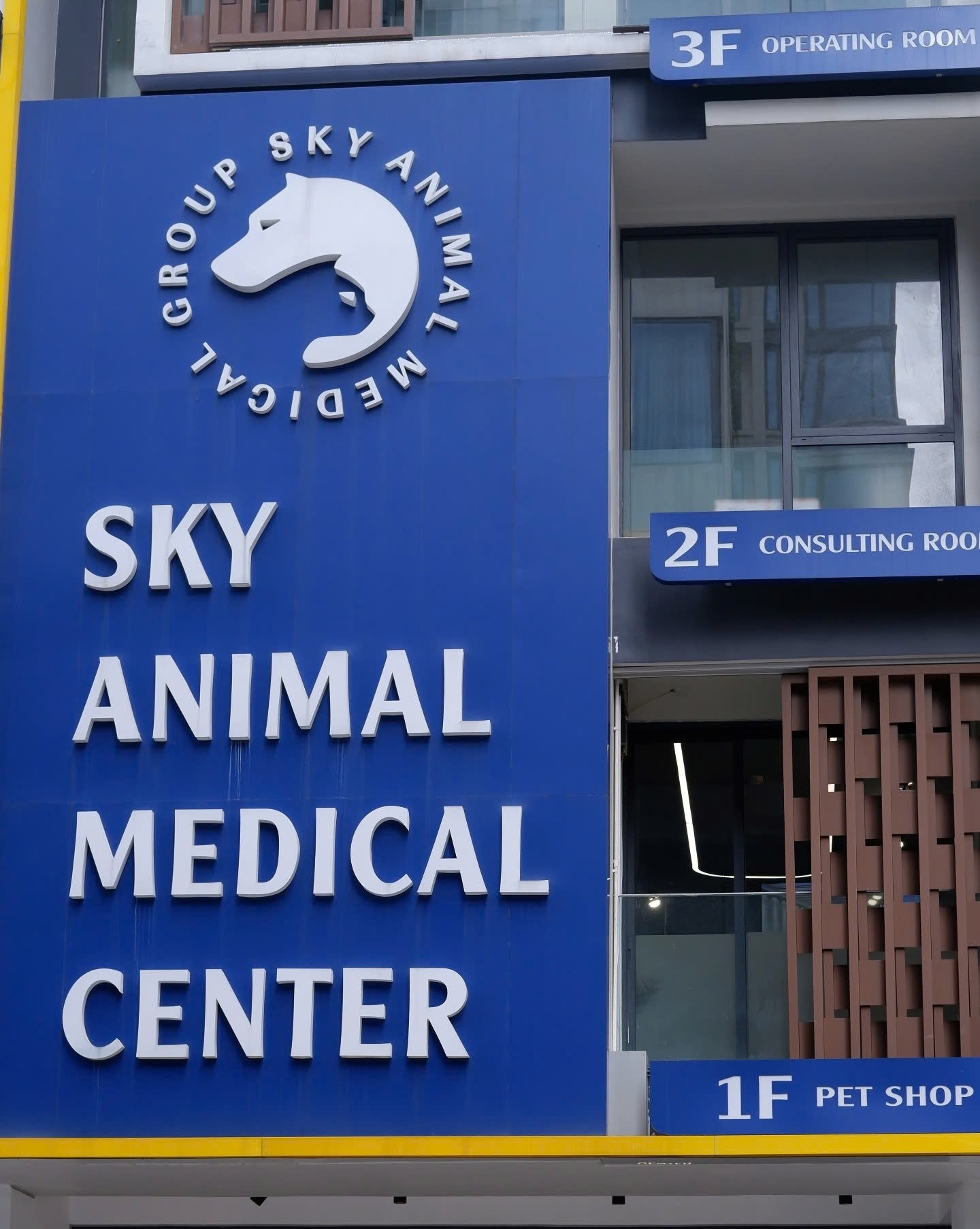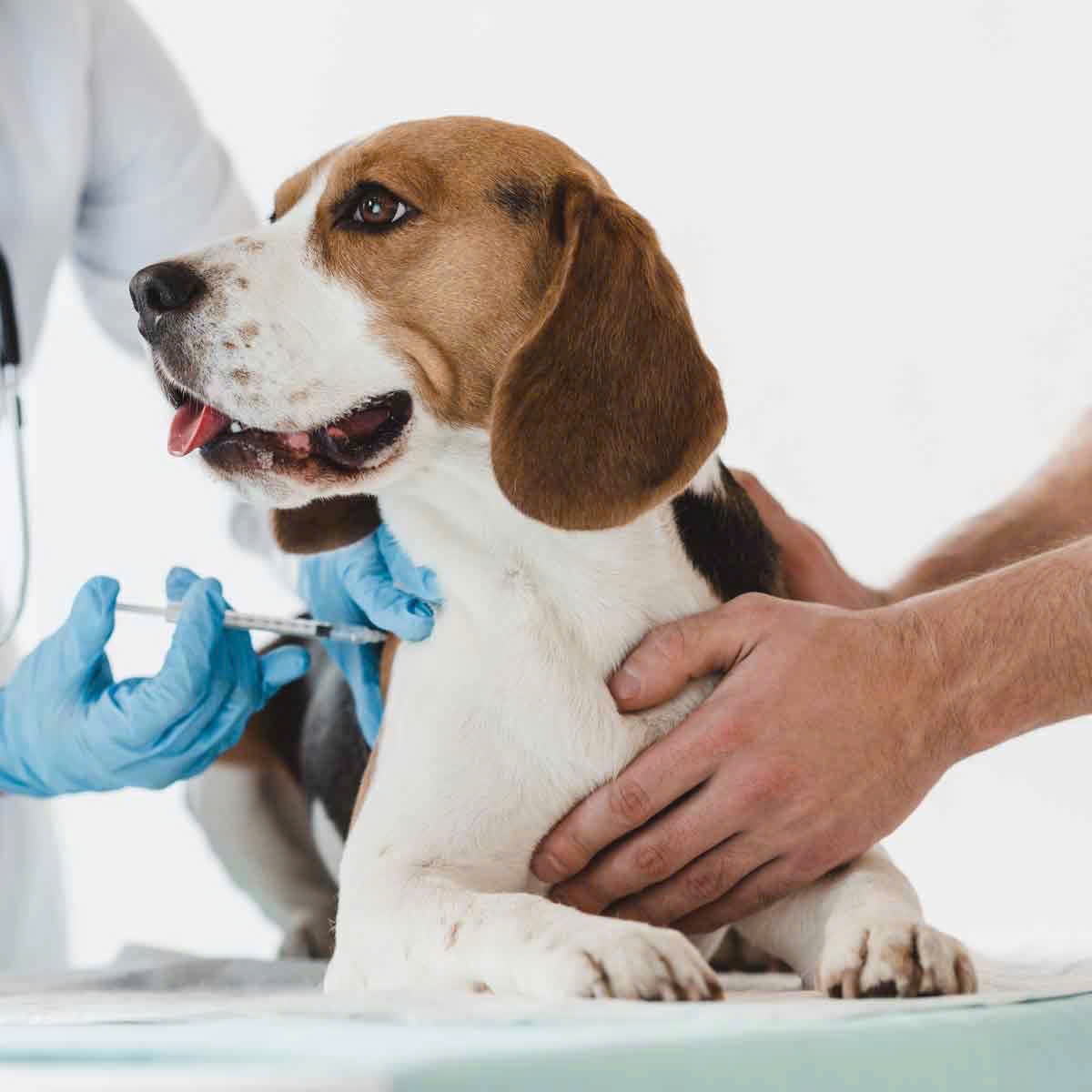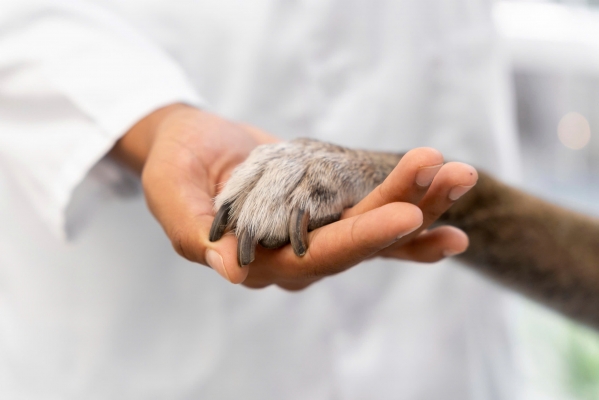Rabies in Dogs and Cats: Causes, Symptoms and Prevention
Causes of rabies in dogs and cats:
Dogs and cats get rabies mainly due to:
- Bites from infected animals: Rabies virus is transmitted through saliva when bitten by dogs, cats or wild animals.
- Contact with saliva of rabid animals: If dogs and cats lick open wounds or mucous membranes (eyes, nose, mouth), the virus can enter.

Symptoms of rabies in dogs and cats:
Rabies in dogs and cats usually progresses through 3 stages:
Incubation period
- Lasts from 2-8 weeks, with almost no obvious signs.
Prodromal stage
- Dogs and cats show unusual signs such as anxiety, avoidance or clinging to their owners more.
- Mild fever, drooling.
Full-blown stage
- Crazy form: Biting, barking hoarsely, aggressively, not recognizing the owner.
- Paralysis form: Jaw muscle paralysis, drooling a lot, unable to swallow, then paralysis of the whole body and death.

Is rabies curable?
Currently, there is no cure for rabies. Once the disease develops, dogs and cats will die within 10 days. Therefore, prevention is the only way to protect pets.
Effective ways to prevent rabies for dogs and cats:
- Regular rabies vaccination: This is the most effective measure. The first injection should be given when dogs and cats are 3 months old and repeated annually.
- Limit contact with wild animals: Do not let dogs and cats come into contact with animals suspected of having the disease.
- Control dogs and cats when outdoors: Use a leash and muzzle if necessary.

What to do when bitten by a dog or cat?
- Wash the wound immediately with soap and clean water for at least 15 minutes.
- Disinfect with alcohol or antiseptic solution.
- Go to a medical facility immediately for advice and rabies vaccination if necessary.
Rabies in dogs and cats is extremely dangerous but can be completely prevented by fully vaccinating and taking proper care of your pets. If you are raising dogs or cats, don't forget the vaccination schedule to protect both your pets and your family!
Register for rabies vaccination at Sky veterinary hospital to ensure the safety of your pet.
Bài viết liên quan
Nơi bạn có thể tìm hiểu thêm về các thông tin và các xu hướng mới nhất về sức khỏe của động vật

Chăm sóc thú cưng chuyên nghiệp tại các bệnh viện thú y quốc tế
Quận 2, Thành phố Hồ Chí Minh, nổi tiếng với cộng đồng quốc tế đa dạng và sự phát triển nhanh chóng, đã thu hút nhiều bệnh viện thú y quốc tế đến phục vụ nhu cầu chăm sóc sức khỏe cho thú cưng.
Xem thêm

Tiêm phòng Vaccine cho thú cưng - Bảo vệ bé yêu ngay hôm nay
Chó và mèo không chỉ là vật nuôi, mà còn là người bạn thân thiết trong gia đình. Cũng giống như con người, chúng có nguy cơ mắc các bệnh nguy hiểm nếu không được bảo vệ đúng cách. Việc tiêm vaccine không chỉ giúp thú cưng khỏe mạnh, mà còn là cách phòng ngừa bệnh tật hiệu quả, giảm thiểu rủi ro lây nhiễm cho cả con người.
Xem thêm

Những căn bệnh thường gặp ở chó mà chủ nuôi cần quan tâm
Chó có thể mắc nhiều vấn đề về sức khỏe, ảnh hưởng đến hệ tiêu hóa, da, hô hấp, tim mạch, xương khớp, mắt, răng miệng và các bệnh truyền nhiễm. Việc nhận biết sớm các dấu hiệu bất thường giúp chủ nuôi có biện pháp phòng tránh và điều trị kịp thời. Dưới đây là những bệnh thường gặp ở chó và cách bảo vệ sức khỏe thú cưng tốt nhất.
Xem thêm
